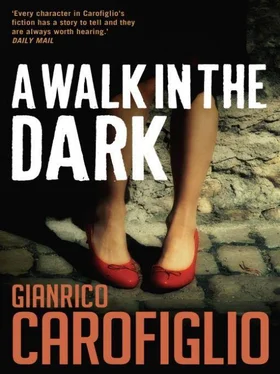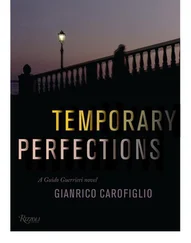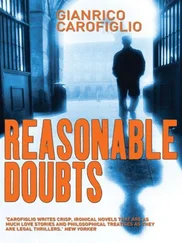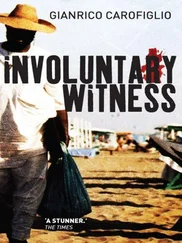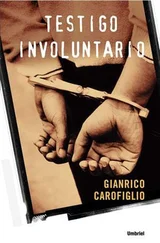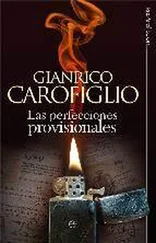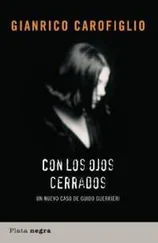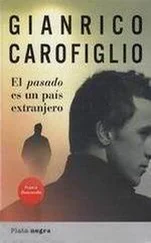Gianrico Carofiglio - A Walk in the Dark
Здесь есть возможность читать онлайн «Gianrico Carofiglio - A Walk in the Dark» весь текст электронной книги совершенно бесплатно (целиком полную версию без сокращений). В некоторых случаях можно слушать аудио, скачать через торрент в формате fb2 и присутствует краткое содержание. Жанр: Криминальный детектив, на английском языке. Описание произведения, (предисловие) а так же отзывы посетителей доступны на портале библиотеки ЛибКат.
- Название:A Walk in the Dark
- Автор:
- Жанр:
- Год:неизвестен
- ISBN:нет данных
- Рейтинг книги:5 / 5. Голосов: 1
-
Избранное:Добавить в избранное
- Отзывы:
-
Ваша оценка:
- 100
- 1
- 2
- 3
- 4
- 5
A Walk in the Dark: краткое содержание, описание и аннотация
Предлагаем к чтению аннотацию, описание, краткое содержание или предисловие (зависит от того, что написал сам автор книги «A Walk in the Dark»). Если вы не нашли необходимую информацию о книге — напишите в комментариях, мы постараемся отыскать её.
A Walk in the Dark — читать онлайн бесплатно полную книгу (весь текст) целиком
Ниже представлен текст книги, разбитый по страницам. Система сохранения места последней прочитанной страницы, позволяет с удобством читать онлайн бесплатно книгу «A Walk in the Dark», без необходимости каждый раз заново искать на чём Вы остановились. Поставьте закладку, и сможете в любой момент перейти на страницу, на которой закончили чтение.
Интервал:
Закладка:
I’d have liked to tell him not to make any more phone calls like the one a few days ago, that I’d make sure he lost any desire he had to do so.
In other words, the reply of a man.
Instead of which, I babbled something about how things aren’t what they seem, and anyway they were different from the way they’d been told to him, and to cut a long story short, I didn’t know how to wriggle out of it only a few days after taking the case. Without a valid excuse, I couldn’t do anything. Maybe in a few weeks, or a few months, depending on how the trial went, we could talk again.
In other words, the reply of a coward.
“All right, Guerrieri. I’ve already said what I had to say. Do as you see fit, let everyone take responsibility for his own actions and face the consequences.”
He turned and walked out. With all the others, in formation. Perfectly trained.
After a few seconds I shook my head, with the kind of movement dogs make when they’re wet and want to shake the water off them, and then went to the cash desk to pay.
“Avvocato Delissanti’s already paid,” the cashier said.
I was about to reply that I’d pay for my own orange juice, or something like that. Then I thought it best to avoid ridicule.
It’s always best, as far as you possibly can.
So I nodded, made a gesture to say goodbye and left.
My good mood after the outcome of that morning’s trial had vanished.
16
Martina and Sister Claudia came to the office the day before the hearing.
I didn’t get straight to the point. I beat about the bush for a while, as I almost always do. First of all, I told Martina it wasn’t necessary for her to be in court the following day. The hearing would consist merely of preliminary issues, the introduction of documents and requests for the admission of evidence. As long as I was there, it was fine.
There was no need for her to miss a day’s work, I said.
There was no need for her to get scared before she had to, I thought.
She wouldn’t need to be in court until we had to examine her, which would presumably be in a few weeks’ time.
She asked me how things would be at that hearing. This was it. We were getting to the point.
I told her how things would be, with all the caution of which I was capable.
First she would be examined by the public prosecutor. Then I would ask her a few questions. Then it would be the turn of the defence.
“This is where things get a bit more… complicated. The charges are based mainly on your word, and so the objective of Scianatico’s lawyer is very simple: to discredit you. He’ll try to do that with every means at his disposal. He’ll try to make you contradict yourself. He’ll try to provoke you and make you lose your cool. It’s unlikely he’ll be gentle, and if he is, it’ll only be to make you lower your defences.”
I paused, before getting on to the worst part. I looked her in the face. She seemed calm. A bit vague, but calm.
“He’ll bring up your health problems, Martina. He’ll bring up the fact that you spent time in hospital, the fact that you had psychiatric problems… I mean psychiatric treatment.”
Martina’s expression did not change. Maybe she looked just slightly vaguer than before.
Maybe. But almost immediately I felt the smell. Intense and slightly acid.
I’ve always been sensitive to people’s smells, able to recognize them, and to notice when they change.
As a child, whenever I entered a lift I could always tell which of the people in our block had been there before me. And I could even put names to the smells. For example, there was a lady in our block who smelled of bean soup. A sad, pale girl with glasses gave off a smell of old paper and dust. The owner of a delicatessen left a hot, thick smell in the lift, which filled the space and made you feel uncomfortable. Many years later I smelled something similar in a shop in Istanbul. It was so similar that for a moment I thought Signor Curci might suddenly appear, with his thick neck, small head and short, solid arms. A few seconds passed before I was able to escape the olfactory shortcircuit and recall that the man had died ten years earlier, while I was still living with my parents. So it was unlikely he’d be hanging around the shops of Istanbul.
Often I notice if a woman is indisposed, from the smell. It’s something I don’t usually talk about, because it’s not the kind of information that puts women at their ease.
I’m capable of smelling and recognizing the smell of fear, which is very nasty, rancid and primeval. I’ve smelled it so many times in police stations, in carabinieri barracks, in prisons, sitting in on my clients’ interrogations. The ones who are most desperate, weakest or simply most scared when they realize they’re really in trouble, or just that there’s no way out.
The first time it happened was not long after I’d become a prosecutor. I found myself appointed by the court to sit in on the interrogation of a man accused of murder. They called me to the station at night – I was on call – because they had to interrogate him immediately. They said he’d stabbed a bruiser who’d previously beaten him up in a bar. They said he’d been seen by a witness. The little man – narrow, slightly bent shoulders, the bewildered look of a small predator – denied everything. It isn’t true, it isn’t true, it isn’t true, he kept repeating, shaking his head, talking in an almost monotonous voice, quite out of place given the situation. He asked to be confronted with the witness. The witness, he said, was wrong and would surely realize his mistake if he could see him face to face. There was something convincing about the dullness and terseness of his defence, and I started to suspect that the police had made a big mistake. And I think the assistant prosecutor who was interrogating him was starting to get the same idea.
Then came the twist. Two policemen entered the interrogation room. One of them was carrying a small transparent plastic bag, and inside it you could see a big knife, the kind called a Rambo knife, its blade dirty with blood. The two policemen looked like cats who’ve caught a mouse. The one with the bag dangled it in front of the little man’s face.
“Now you’re really fucked, arsehole. You should have found this for us yourself. So what about a confession now, eh? There are more prints on this than in all the files in this station. And they’re all yours.”
It was obvious he’d have liked to underline his words with a pair of well-aimed slaps. But unfortunately he couldn’t – he must have thought – not with a magistrate and a lawyer in the room.
I don’t remember what happened next. I know the man stopped denying it and confessed soon after. But I don’t remember the exact sequence, what he said, what the public prosecutor asked him, what I said to justify my unnecessary presence. By this point it wasn’t important. But what I do remember is the smell, which soon filled that little room in the station. Covering the stench of smoke – the cold stench of years and the warm stench of a night of interrogations – the smell of the people, the paper, the dust, the dregs of coffee in the plastic cups.
It was a sharp, obtrusive, slightly obscene smell. And since that night I’ve never mistaken it.
Immediately after telling Martina that Scianatico’s lawyer would pry into her most personal problems, I smelled that smell. It wasn’t very strong, but there was no mistaking it. And it wasn’t pleasant. I tried to ignore it as I started giving her instructions on how she should act.
“As we’ve said, he’ll try to provoke you. So the first rule is: don’t let yourself be provoked. It’s what he wants and we mustn’t give it to him.”
Читать дальшеИнтервал:
Закладка:
Похожие книги на «A Walk in the Dark»
Представляем Вашему вниманию похожие книги на «A Walk in the Dark» списком для выбора. Мы отобрали схожую по названию и смыслу литературу в надежде предоставить читателям больше вариантов отыскать новые, интересные, ещё непрочитанные произведения.
Обсуждение, отзывы о книге «A Walk in the Dark» и просто собственные мнения читателей. Оставьте ваши комментарии, напишите, что Вы думаете о произведении, его смысле или главных героях. Укажите что конкретно понравилось, а что нет, и почему Вы так считаете.
